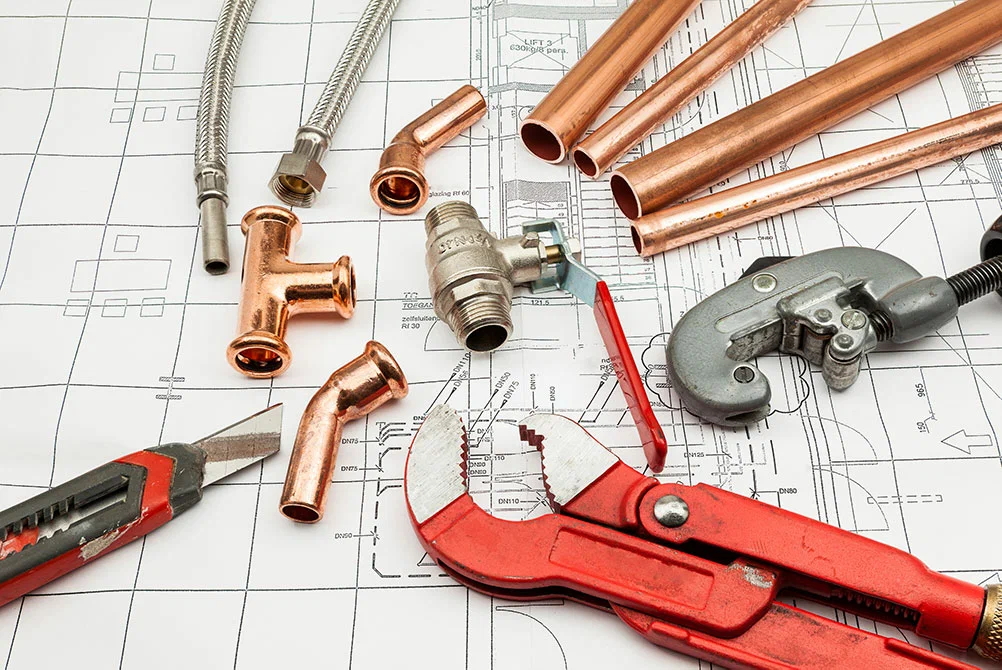As winter approaches in Ireland, preparing your home’s plumbing and heating systems becomes essential to avoid costly repairs and ensure a cozy, warm environment. With the right precautions, you can prevent issues like frozen pipes and inefficient heating and save on energy bills. Whether you’re a homeowner looking to avoid the winter chill or a renter responsible for maintenance, this guide will walk you through the steps to winterize your systems using effective heating and plumbing solutions.
1. Why Winter Preparation is Important
Imagine it’s a cold January morning in Cork or Kerry, and you wake up to a chilly home or worse – no hot water. Cold weather can be harsh on your home’s plumbing and heating systems. Pipes can freeze or burst, boilers can break down, and radiators may fail to heat adequately. By taking a few precautionary steps, you protect your home from unexpected repairs and increase your energy efficiency and comfort all winter long.
2. Inspect and Maintain Your Boiler
One of the first steps in winter preparation is ensuring your boiler is in optimal condition. The boiler is the heart of your heating system, so you want it running smoothly all season.
Tips for Boiler Maintenance:
- Schedule an annual inspection: Hiring a professional to check for leaks, pressure levels, and efficiency can make a big difference. Annual inspections help detect issues before they become expensive repairs.
- Check the pressure: Low pressure in your boiler means it’s not heating efficiently. A simple fix is to follow the manufacturer’s instructions to adjust it.
- Clean out dust and debris: Dust can clog your boiler’s components, reducing efficiency and causing a potential fire hazard. Ensure it’s cleaned before winter.
- Bleed the radiators: If your radiators aren’t heating up properly, bleeding them can release trapped air and improve heat distribution.
3. Insulate Exposed Pipes
Frozen pipes are a common winter issue in Ireland. When water freezes inside a pipe, it expands, potentially causing cracks or bursts that lead to costly water damage.
How to Insulate Pipes:
- Use foam insulation sleeves: These are cost-effective and easy to install. Just slide them over exposed pipes, especially those in unheated areas like garages, attics, and basements.
- Add heat tape: For particularly vulnerable pipes, heat tape can provide extra warmth and protection.
- Wrap outdoor faucets: Don’t forget about outdoor faucets, which are often exposed to the cold. Cover them with faucet protectors or wrap them with insulation tape.
4. Service Your Water Heater
When temperatures drop, the demand for hot water increases. Make sure your water heater can keep up by performing a few maintenance tasks.
Water Heater Tips:
- Flush the tank: Sediment builds up over time, reducing efficiency. Flushing the tank helps the heater work more effectively, saving energy.
- Set the right temperature: Set your heater’s thermostat to around 60°C (140°F). This temperature provides sufficient hot water while preventing overheating.
- Insulate the heater: An insulated water heater will retain heat longer, making it more efficient.
5. Check for Leaks and Drips
Even small leaks can turn into bigger issues in winter. Inspect all your taps, pipes, and fittings, both indoors and outdoors, for any signs of leaks.
Steps to Handle Leaks:
- Look for signs of dampness: Check under sinks, around toilets, and in basements for any moisture or puddles.
- Tighten fittings: Sometimes, a minor twist can stop a small leak.
- Replace worn-out washers: If a tap is constantly dripping, a worn-out washer could be the issue. Replace it to prevent water wastage.
6. Bleed and Test Your Radiators
Radiators that aren’t heating up properly could have trapped air inside, reducing their efficiency. Bleeding your radiators is a simple and effective heating and plumbing solution that can improve warmth in your home.
How to Bleed a Radiator:
- Turn off the heating: Make sure the system is off so you can safely release air without burning yourself.
- Use a radiator key: Place the key in the valve and turn it counterclockwise until air starts hissing out.
- Wait for water: Once water begins to trickle out, close the valve tightly. Repeat this for each radiator in the house.
- Turn the heating back on Test your radiators to see if they’re now warming up evenly.
7. Test Your Thermostat
A faulty thermostat can make it difficult to maintain consistent temperatures, leading to overworked heating systems and higher energy costs.
Thermostat Tips:
- Test it before winter hits: Set your thermostat to a few degrees above room temperature. If it doesn’t respond, it might need recalibration or replacement.
- Consider a programmable thermostat: These devices allow you to schedule heating, reducing waste by only heating when necessary.
- Regular battery checks: Many thermostats rely on batteries, so replace them regularly to ensure they operate smoothly.
8. Drain Outside Hoses and Faucets
Water left in hoses and exterior faucets can freeze and cause pressure buildup, potentially leading to cracked pipes.
Drainage Tips:
- Disconnect hoses: Detach and drain all hoses before storing them indoors.
- Turn off outdoor water supply: Locate the shut-off valve for exterior faucets and drain any remaining water.
- Cover exposed faucets: Use faucet covers or insulated wraps for added protection.
9. Insulate Your Home
Beyond your plumbing and heating systems, insulating your home can make a substantial difference in keeping warmth in and cold out, reducing the load on your heating system.
Simple Insulation Tips:
- Seal gaps around windows and doors: Drafts can let in cold air, so use weatherstripping to seal gaps.
- Add door sweeps: These inexpensive additions can prevent cold air from seeping in under doors.
- Use heavy curtains: Thick, insulated curtains can help keep warmth in and reduce drafts.
10. Set Up a Maintenance Schedule
A proactive maintenance schedule helps you stay ahead of any potential issues, ensuring your heating and plumbing systems are always in top condition.
Create a Checklist:
- Monthly checks: Inspect for any visible leaks, check pressure levels, and ensure pipes are dry.
- Biannual inspections: Schedule professional checkups every six months, ideally before winter and after summer.
- Document maintenance: Keep a log of maintenance activities, including repairs, inspections, and replacements.
11. Know When to Call a Professional
While there are many DIY heating and plumbing solutions, some issues are best left to professionals. Knowing when to call for help can prevent minor problems from escalating into costly repairs.
When to Seek Professional Help:
- Boiler issues: If your boiler makes unusual noises or fails to maintain pressure, call an expert.
- Persistent leaks: Any leak that doesn’t resolve with basic fixes should be inspected by a professional.
- Pipe bursts: If a pipe bursts, shut off the water supply immediately and call for emergency plumbing services.
Conclusion
Preparing your home’s plumbing and heating systems for winter in Ireland doesn’t have to be complicated. With regular maintenance, proper insulation, and a few proactive steps, you can keep your home warm, avoid emergency repairs, and even lower your energy bills. Whether you’re handling basic maintenance or seeking professional heating and plumbing solutions, taking action before the cold sets in will make winter far more comfortable and stress-free. By winterizing your systems, you’ll be ready to face Ireland’s cold season with confidence and ease.

